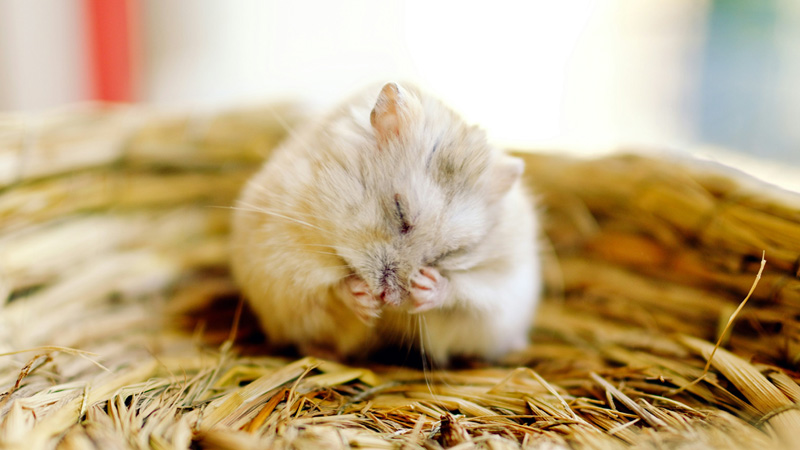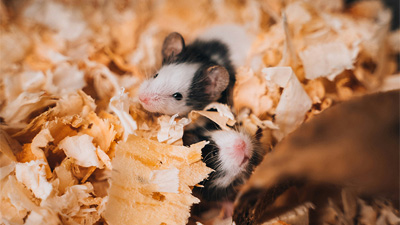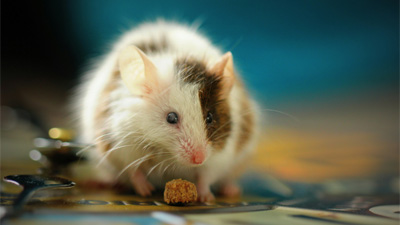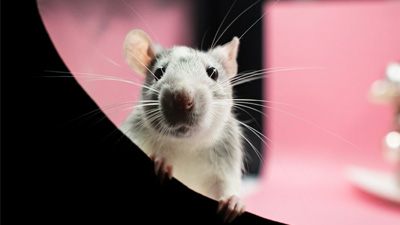How Long Do House Mice Live as Pets?

Photo by Kong Jun on Unsplash
If you're considering getting a house mouse as a pet, one question that may come to mind is, "How long do house mice live?" The lifespan of a house mouse can vary depending on various factors such as genetics, diet, environment, and overall care. In this article, we'll explore the average lifespan of house mice as pets, as well as the factors that can influence their longevity. So, let's dive in and learn more about these fascinating creatures and their lifespan as pets.
The Average Lifespan of House Mice
House mice have an average lifespan of 1 to 3 years when kept as pets. This lifespan can vary for each individual mouse due to factors such as genetics, diet, environment, and healthcare. Some mice may live slightly shorter or longer lives than the average estimate. Considering the short lifespan of house mice as pets, they can be suitable for owners who are looking for a shorter-term pet experience.
Lifespan Comparison
Wild mice face numerous challenges in their natural habitats, which often result in shorter lifespans compared to their domestic counterparts. Predation, limited food availability, exposure to harsh environmental conditions, and other natural factors can contribute to a shorter average lifespan of wild mice, typically ranging from 3 to 6 months. Only a few individuals manage to survive up to 18 months in the wild.
In contrast, house mice kept as pets benefit from the controlled environment and care provided by their owners. Pet mice are protected from predators, provided with regular meals, and have a controlled climate, all of which contribute to longer and healthier lives.
Factors That Impact Mouse Lifespan
Body Size and Metabolism: In general, smaller mammals tend to have shorter lifespans. Mice have a higher metabolism and faster heartbeats, contributing to the faster aging of their bodies.
Genetics: While breeding lines of mice may have individuals that live longer than the average mouse, it is essential to note that these cases are rare. Genetic factors can influence a mouse's lifespan, with certain varieties being more prone to medical conditions. For example, hairless mice are susceptible to skin diseases, and blue mice often have hemophilia, which can lead to bleeding tendencies and premature death.
Improving Mouse Lifespan Through Optimal Care
Although you cannot significantly alter a mouse's genetic predisposition for a longer life, providing proper care and husbandry can significantly impact their overall health and lifespan. Here are some essential tips for maximizing your pet mouse's lifespan:
Provide a Suitable Living Environment: Mice thrive in large, spacious cages with good ventilation. Regular cage cleaning is crucial to prevent the buildup of waste odors, which can lead to respiratory issues. Mice are adaptable to their owner's schedule but require exercise, mental stimulation, and routine handling outside of their cage to bond with their family.
Balanced and Nutritious Diet: Feed your mouse a high-quality pellet food designed specifically for mice and rats. Avoid seed-based diets that can lead to obesity. Fresh water should always be available and changed daily.
Social Considerations: Female mice can live together peacefully, but it's important to ensure they are not overcrowded. Males should be housed separately to prevent fights and injuries.
Regular Veterinary Check-ups: Schedule regular appointments with a veterinarian experienced in small animal care. Yearly check-ups can help identify any health issues early on and ensure your mouse receives appropriate medical care.
Avoid Toxic Substances: Cedar chip bedding can be toxic to mice and should be avoided. Opt for safer bedding alternatives such as Carefresh Small Pet Bedding, which provides a comfortable and suitable substrate for nesting behaviors.
Mental Stimulation and Enrichment: Provide your mouse with toys and chew toys to keep them mentally stimulated and their teeth healthy. Mice are curious creatures and enjoy exploring their environment.
Optimal Temperature Range: Mice are sensitive to extreme temperatures. To ensure their well-being, maintain a temperature range between 65 and 80 degrees Fahrenheit.
Bonding and Interaction: Handle your mouse gently and regularly to encourage bonding and enrichment. This interaction creates trust and strengthens the bond between the mouse and its owner.
Conclusion
The average lifespan of a house mouse as a pet ranges from 1 to 3 years, although some mice may live up to 4 years with proper care. Factors such as genetics, diet, environment, and overall care influence a mouse's lifespan. By providing a nutritious diet, a suitable living environment, regular veterinary care, and ample mental stimulation, you can help enhance the lifespan and quality of life of your pet mouse.
Remember that each mouse is unique, and individual factors may impact their lifespan differently. Paying attention to their specific needs and providing proper care and attention will help ensure your pet mouse lives a long and fulfilling life as your beloved companion.
You May Also Like
 Pet MousePet Mice vs. Rats: What Is the Difference?
Pet MousePet Mice vs. Rats: What Is the Difference? Pet MouseCan Mice Make Allergies Worse?
Pet MouseCan Mice Make Allergies Worse? Pet RatsExploring The 4 Largest Pet Rat Breeds
Pet RatsExploring The 4 Largest Pet Rat Breeds Pet RatsHow Long Do Pet Rats Live? Explore Their Journey
Pet RatsHow Long Do Pet Rats Live? Explore Their Journey Pet RatsAre Rats a Good Pet? Exploring the Benefits of Pet Rats
Pet RatsAre Rats a Good Pet? Exploring the Benefits of Pet Rats Pet RatsWild Rats vs. Pet Rats: What Is the Difference?
Pet RatsWild Rats vs. Pet Rats: What Is the Difference?